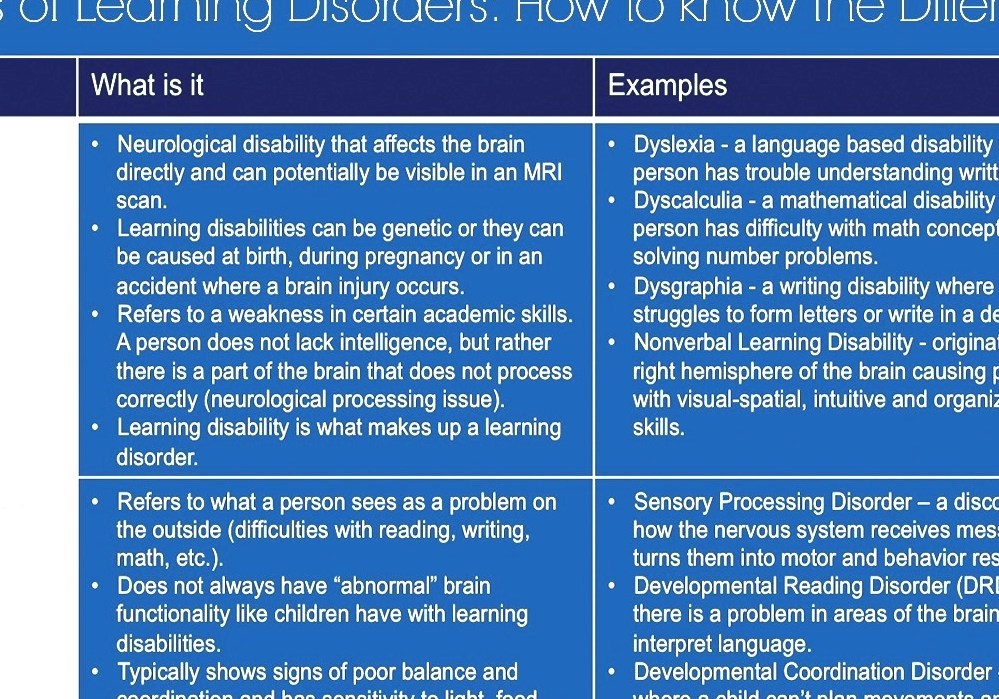Nonverbal Learning Disability: Understanding and Managing the Condition
Nonverbal Learning Disability (NLD), also known as Nonverbal Learning Disorder, is a neurological condition that affects an individual’s ability to interpret nonverbal cues such as facial expressions, body language, and gestures. It was first identified by Dr. Byron Rourke in 1987 and has since gained recognition as a legitimate learning disability.
Individuals with NLD typically have strong verbal abilities but struggle with social skills, visual-spatial tasks, motor coordination, and abstract thinking. They may also experience difficulty with organizational skills, time management, and executive functioning.
Symptoms of NLD can present differently in each person affected by it; however, there are some common characteristics that are commonly associated with the condition. These include:
1. Strong verbal skills: Individuals with NLD often have well-developed vocabularies and excel at reading comprehension and spelling.
2. Weak visual-spatial skills: Difficulty in understanding maps or diagrams is common among individuals with NLD.
3. Poor motor coordination: Physical clumsiness is often exhibited by people living with this disorder.
4. Trouble interpreting non-verbal communication: Facial expressions or body language can be challenging for individuals struggling with NLD to read or understand correctly.
5. Challenges related to social interactions: Making friends or sustaining relationships due to difficulties interpreting subtle social signals is a common challenge for those affected by Non-Verbal Learning Disability.
6. Difficulty processing information quickly which leads them to become overwhelmed easily when given multiple instructions at once
The diagnosis of NLD is not straightforward because it shares many symptoms similar to other disorders like Autism Spectrum Disorder (ASD) or Attention Deficit Hyperactivity Disorder (ADHD). Therefore doctors initially evaluate the individual’s behavior using neuropsychological tests coupled up with developmental assessments before diagnosing this disorder accurately.
Managing Nonverbal Learning Disability
Although there isn’t any cure for NLD, the condition can be managed with early diagnosis and effective treatment. Here are some ways to manage NLD:
1. Early intervention: It is vital to identify the symptoms of NLD as early as possible so that appropriate interventions can be put in place to help individuals learn more effectively.
2. Educational support: Individuals with Nonverbal Learning Disability may require additional educational support such as tutoring or specialized education programs that cater specifically to their needs.
3. Therapy: Cognitive-behavioral therapy (CBT) has been shown to be effective in helping individuals with NLD develop better coping mechanisms for social situations and improve executive functioning abilities.
4. Occupational therapy: This type of therapy focuses on improving motor coordination skills and enhancing visual-spatial perception.
5. Social Skills Training: People living with Non-Verbal Learning Disability often struggle with social interactions which could adversely affect their quality of life if left untreated over time since isolation could lead to depression and other related conditions. Thus it is important that they receive adequate training on how to interact socially using verbal communication cues such as tone, pitch, inflection etc.
6. Assistive Technology Tools like text-to-speech software or speech recognition tools may help people living with this disorder overcome their challenges by making everyday tasks easier.
Nonverbal learning disability has significant impacts on an individual’s life, but early identification and management can greatly improve outcomes for those affected by it.
Alternative schools are well-suited environments for children who have diverse learning needs because they provide personalized attention, flexible schedules, innovative teaching methods coupled up with a supportive environment where students feel free enough to express themselves without any fear of judgment from peers or teachers alike.
In conclusion, parents should not hesitate if they notice any unusual behavior in their child’s development; instead, seek professional advice immediately so that appropriate interventions can be put in place earlier before the issue becomes too severe or irreversible over time. Early diagnosis and appropriate treatment are crucial to improve the lives of people living with Nonverbal Learning Disability.

Leave a comment